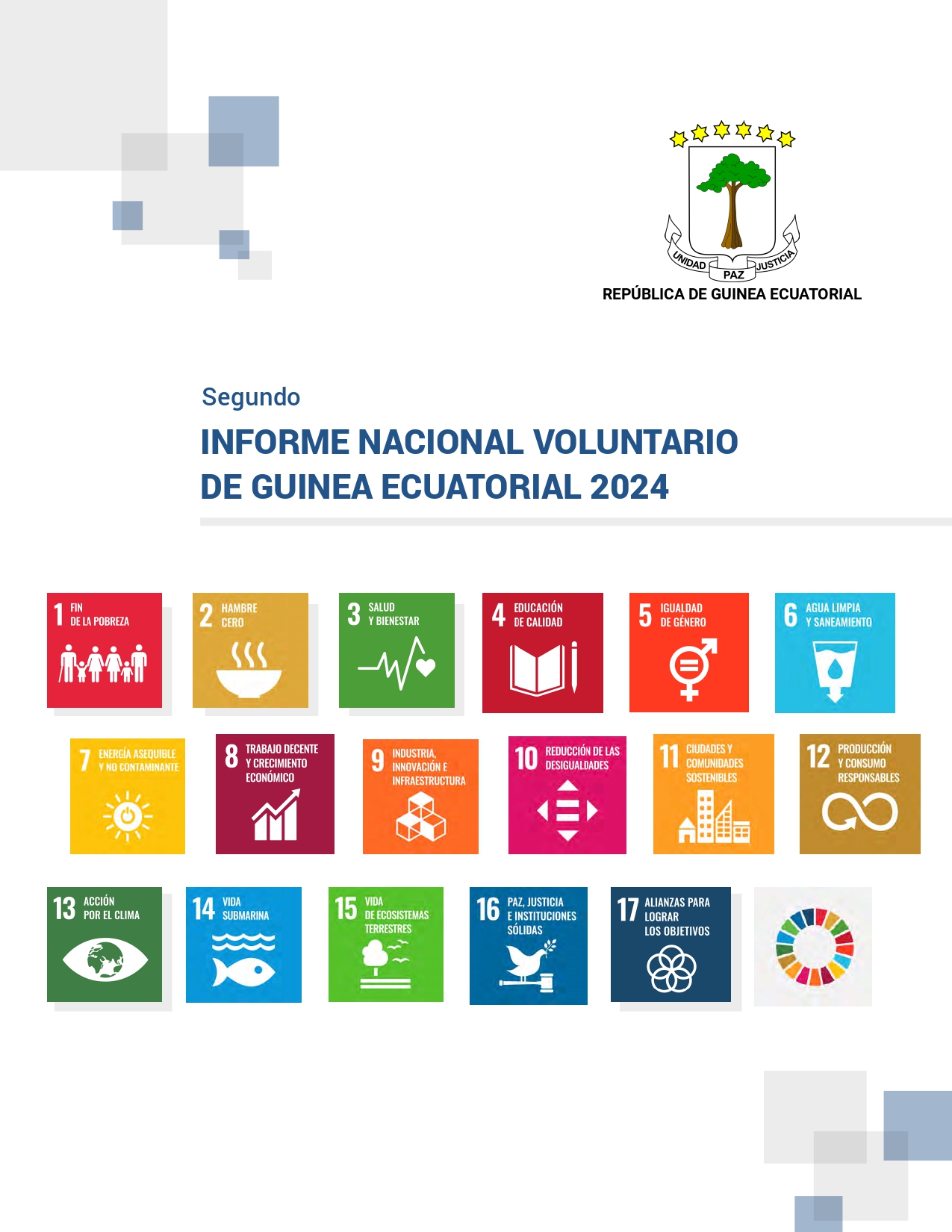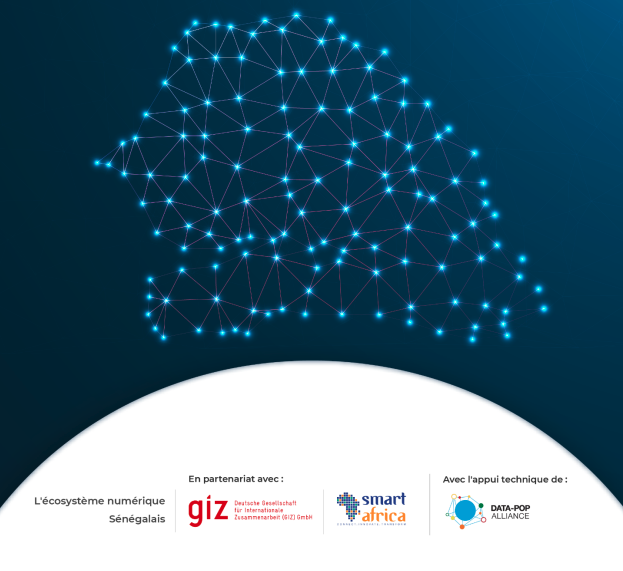DATA LITERACY SERIES (Text in Spanish / English)
En esta nueva “Serie de Alfabetismo de Datos” entrevistamos a participantes que han tomado nuestros cursos en línea. La serie continuara con la entrevista al participante del taller 4 Big Data y análisis de seguridad y violencia para el desarrollo sostenible: Mirza Cumez. Este taller fue un trabajo conjunto entre AECID -a través de su Centro de Formación de la Cooperación Española en Santa Cruz de la Sierra, Bolivia- y Data-Pop Alliance. Lee sobre la experiencia de Mirza en este taller, cómo le pareció asistir a un taller virtual, y cómo planea aplicar lo aprendido en su area de trabajo. Al final de la transcripción podrás igualmente encontrar el video de la entrevista.
Sara Ortiz: ¡Buenas tardes! Vamos a entrevistar a una participante que hizo parte de nuestro taller en Big Data y Seguridad y Violencia. Muchas gracias por unirte a esta entrevista. Primero que todo, quiero que te presentes, que nos cuentes un poco sobre ti, cuál es tu nombre, tu formación académica y también a qué te dedicas en este momento.
Mirza Cumez: Mucho gusto Sara, gracias por la invitación. Para mí es un gusto compartir con ustedes esta experiencia tan motivadora, de profesionalización y de actualización. Mi nombre es Mirza Cumez, soy guatemalteca, soy una mujer mestiza, que ya por 16 años he estado trabajando en temas de seguridad, violencia, políticas públicas y género. Mi formación realmente me ha llevado a muchos temas. Yo soy pedagoga con especialidad en derechos humanos. Mi pilar académico me permite desarrollarme en diferentes áreas, pero debido a diferentes cuestiones, me he especializado mucho en los temas de genero, políticas públicas, violencia contra las mujeres y seguridad. Trabajo actualmente para una institución pública donde me encargo de toda la parte de asesoría técnica con el fin de garantizar que existan políticas, planes, programas, proyectos y presupuestos que aseguren abordar la violencia contra las mujeres de manera transversal, integrando a todas estas instituciones que tienen un mandato especial y un compromiso a nivel estatal para proveer soluciones y abordar la problematica adecuadamente.
SO: Muchas gracias. Realmente tienes un perfil muy interesante y muy relacionado con el tema del taller. También por eso quiero preguntarte ¿cómo llegaste a conocer del curso, si te lo referenciaron, si lo viste por redes o, como llegaste a conocer de él? Y al final ¿qué fue lo que más te motivó a aplicar?
MC: Bueno, sinceramente yo creo que las oportunidades te llegan cuando tú estás con las intención de seguir actualizándote, de conocer, de innovar en tu propia profesión. Una compañera y amiga de trabajo me comentó sobre el curso y me lo compartió un día antes de que se cerrara la fecha para aplicar. Cuando yo vi el curso realmente me llamó mucho la atención, porque las becas para este tipo de formación no existen muchas, no conozco tantas y es algo muy especializado. Creo que a nivel regional, para algunos países la práctica del big data para abordar la temática de seguridad es, tal vez, más avanzada, pero otros países cómo el mío, todavía estamos empezando. Entonces, definitivamente este era un curso de interés. Cuando vi la fecha, decidí presentarme, y al final fui aceptada. La motivación para realizar este taller no solo se centró en continuar con mi formación sino, con la intención de compartir con otras colegas que trabajan en la temática de seguridad y violencia y que les interesa y desean actualizarse. Tengo ese compromiso de replicar el conocimiento y, por eso, para mí la experiencia fue novedosa en el sentido de cómo se está tratando regionalmente. No son temas que estén abordados en cursos que están ofreciendo actualmente. No existe una oferta que esté tan presente, desde mi perspectiva, aunque creo que ahora que ya conozco más instituciones e iniciativas en la región, será más fácil de ubicar este tipo de información.
" La motivación para realizar este taller no solo se centró en continuar con mi formación sino, con la intención de compartir con otras colegas que trabajan en la temática de seguridad y violencia y que les interesa y desean actualizarse. Tengo ese compromiso de replicar el conocimiento y, por eso, para mí la experiencia fue novedosa en el sentido de cómo se está tratando regionalmente. No son temas que estén abordados en cursos que están ofreciendo actualmente."
Mirza Cumez
SO: En cuanto a las expectativas que mencionas y a que este curso no es algo que habías visto antes ¿Cómo te pareció el taller en si, los materiales, la experiencia con los demás participantes, con las conferencistas? ¿Te pareció útil para tu trabajo? ¿Qué fue lo que más te gustó del curso?
MC: Mira, sinceramente, yo me quedé sorprendida por la cantidad de información relevante que existe y a la cual no le estamos prestando atención. Vuelvo y menciono, el tema de la oferta de este tipo de formaciones es limitada y tampoco existen muchos espacios para compartir experiencias, como el que ofrece este taller. A nivel Latinoamericano pienso que hay muchos expertos y que existen muchos proyectos y prácticas interesantes que se están llevando a cabo, pero que si no se da a conocer a través de estos espacios (como el del taller), creo que se queda ahí. En muchos de los módulos, volví a ver varias veces las grabaciones de las sesiones, porque eso es algo que me parece bastante accesible en el curso y muy interesante. De esta forma pude identificar cuál fue la información más relevante para cada tema. Creo también que los materiales facilitan la compresión y la conexión de conocimientos, porque hay cosas que de pronto ya sabemos, pero no se ven desde una dimensión distinta. Cuando oyes ese conocimiento de la parte de los expertos, es cuando te das cuenta de la realidad, del alcance que puede tener y cómo la tecnología está permeando todas las áreas de nuestra vida, Entonces, así como el Big Data se está utilizando en educación, en comercio, también se está utilizando en muchas áreas de nuestra vida. Igualmente se puede utilizar de una forma muy eficiente y novedosa para abordar todas las problemáticas centrales de muchos países.
En Guatemala, la violencia contra las mujeres es el delito más denunciado. Tenemos estadísticas que nos dicen que la tendencia es el aumento de este tipo de denuncias. Existe un esfuerzo importante del país para visibilizar esta problemática, enfocándose en el hecho de que este tipo de violencia no se debe normalizar y que se debe abordar con ayuda de las instituciones, las cuales tienen compromisos de fortalecer los modelos que tenemos. Entonces, cuando empezamos a ver que el análisis para prevenir violencia utilizando datos no tradicionales existe, es una oportunidad para aprovecharlo y llevarlo a la vida pública. De esta forma se puede empezar a hablar con las instituciones que están abordan el tema, diciéndoles miren, hay experiencias, existe tecnología que nos va a ayudar, existen modelos que se pueden aplicar. Por ejemplo, los casos de estudio, como el que presentaron de Sierra Leona, creo que son de las cosas más relevantes que hay que aprovechar. También el tema, por ejemplo, de geo referencia, de cómo se está aplicando, cómo nos sirve para analizar lo que actualmente está pasando y muchas otras problemáticas.
Todo el conocimiento del taller hay que aprovecharlo y sobre todo porque es interdisciplinario. Eso algo que me gustó bastante porque no vimos todo bajo una sola perspectiva, sino que se vio bajo las perspectivas de derechos humanos, de seguridad, de tecnología. Los participantes del taller también son interdisciplinarios. No necesariamente necesitas ser programador o una persona que se dedica al área de TICs, ya que el taller está abierto a muchas otras disciplinas, por lo que creo que es interesante su contenido. En general, todos los módulos fueron provechosos. Los felicito por este tipo de iniciativas y espero que puedan otorgar muchas mas becas para seguir este tipo de formaciones.
SO: Nos alegra mucho que hayas podido aprovechar el taller. Relacionado con el curso, quería preguntarte sobre el formato, porque tal vez, hay formatos un poco más presenciales, pero en este caso todo el curso fue completamente virtual, bajo este contexto, ¿te gustó realizar el curso de esta forma?, ¿crees que se compara con la calidad de un taller presencial? ¿Cuáles serían sus ventajas o desventajas?
MC: Bueno, definitivamente el tema e-learning ya no va a retroceder. Desde que empezamos a usar la tecnología para formarnos de una forma más continua, creo que tenemos que irnos adaptando. En realidad, creo que existe mucha preferencia por este medio de aprendizaje, por lo menos lo hay de mi parte. He visto igualmente que otros profesionales y la población educativa que prefiere el e-Learning. Entonces definitivamente debemos adaptarnos a esta modalidad. Creo que este curso tiene lo necesario para poder comprender. Si no lo comprendiste durante la conferencia, tienes la grabación, el documento de la presentación, tienes videos, tienes todos los materiales. Es bastante autodidacta y creo que depende mucho del interés que te despierte cierta información que vas entendiendo. Por mi área de trabajo, había información que yo requería volver a leerla, entender más despacio la explicación. Y precisamente esto lo facilita el curso, o sea el formato. Aunque creo que definitivamente lo presencial suma, más en el caso de que se tratara de un encuentro nacional o regional que permitiera encontrarse con gente. Este fue el caso cuando asistí a un evento presencial y por casualidad conocí a otra participante que también estaba en el taller. Fue la oportunidad para platicar. El formato virtual permite ajustarse y es lo que me permitió hacer este curso, encontrar los momentos en tiempo de oficina o de casa, tú vas viendo cómo lo combinas. Me parece que es una buena opción y que quien quiera inscribirse puede aprovechar este formato.
SO: Nos alegra saber eso. Y ahora que mencionas de quien quiere inscribirse ¿tú recomendarías también este curso a otras personas? ¿Crees que sería provechoso para más personas? Y qué tipo de perfiles crees que serían los más interesados en tomar cursos de este tipo? específicamente con el tema de seguridad o tal vez más amplio, tal vez al tema de Big Data y su relación con otras áreas, como mencionaste antes.
MC: Mira, yo creo que este curso, si alguien tiene la oportunidad de tomarlo no debe pensarlo tanto, porque definitivamente va a sumar mucho a su perspectiva. Desde la vida personal, por ejemplo, te hace más consciente sobre todo el tema de privacidad en el uso de tecnologías. Entender que el big data se alimenta de esas migajas que va dejando en el uso de toda la tecnología, como tus búsqueda en internet, descarga de aplicaciones, el uso de correo electrónico, entre muchas otras cosas. Entender la tecnología desde esa perspectiva personal aporta bastante. Ahora, desde una perspectiva profesional, ayuda a visibilizar o evidenciar que las tecnologías ya están aquí y que para muchos países ya es una realidad. Tal vez, algunos países ya han venido trabajando por más tiempo en proyectos interregionales que usan la inteligencia artificial para hacer prevención, identificar de manera acertada las áreas donde pueden surgir conflictos. Por ejemplo, para una persona que trabaja seguridad, que está involucrada en temas de justicia, de derechos humanos, en temas sociales, sociólogos, incluso politólogos, veo que el rango de profesionales que pueden aprovechar el curso es bastante amplio. Este curso no está limitado, como se puede pensar en un principio, a programadores o personas especializadas en temas tecnológicos. Hacer este curso aporta mucho y además va despertar el interés por otro tipo de temas o de cursos que estén relacionados. En mi caso, yo tengo pendiente revisar el curso y tomar lo más relevante para mi profesión y socializar con otros profesionales. Este curso me abre otra perspectiva. En este momento me encuentro finalizando una maestría en tecnología educativa y competencias digitales, donde tuve la oportunidad de ver big data desde la perspectiva de educación. Con este taller, vi el big data desde la perspectiva de violencia lo cual encuentro muy interesante.
SO: Increíble. Muchísimas gracias por compartir con nosotros tu experiencia, todo este recorrido y por ese mensaje tan positivo que también tienes. Agradecemos mucho tu presencia en el taller y esperamos poder seguir ofreciendo este tipo de capacitaciones para personas de la región sobre estos temas y que puedan ser oportunidades para que más personas se familiaricen con este tipo de datos para aplicarlos en diferentes áreas. De nuevo muchas gracias por participar y gracias también por concedernos la oportunidad de poder entrevistarte hoy.
MC: Ha sido un gusto Sara.
Para ver el video de la entrevista haz click aquí:
English Version
In our new “SDG Data Lab” series, we interview different participants of our online courses or workshops. This edition is an interview with Workshop 4 Big Data and Security & Violence Analysis for Sustainable Development participant, Mirza Cumez. Read about Mirza’s experience in this workshop, his opinion on taking an online workshop, and how she plans to implement what she learned in her work.
Sara Ortiz: Good afternoon! We are going to interview a participant who took part in our workshop on Big Data and Security and Violence. Thank you very much for joining this interview. First of all, I want you to introduce yourself, tell us a little bit about yourself, what your name is, your academic background and also what you do at the moment.
Mirza Cumez: Nice to meet you Sara, thank you for the invitation. It is a pleasure for me to share with you this very motivating, professionalizing and up to date experience. My name is Mirza Cumez, I am Guatemalan, I am a mixed race woman, and for 16 years I have been working on issues of security, violence, public policy and gender. My academic training has really led me to many areas. I am an educator with a specialty in human rights. My academic background allows me to develop in different areas, but due to different reasons, I have specialized a lot in gender, public policies, violence against women and security. I currently work for a public institution where I am in charge of all the technical advisory part in order to ensure that there are policies, plans, programs, projects and budgets that ensure to address violence against women in a cross-cutting manner, integrating all these institutions that have a special mandate and commitment at the state level to provide solutions and address the problem adequately.
SO: Thank you very much. You really have a very interesting profile and it is very related to the theme of the workshop. That’s also why I want to ask you how did you get to know about the course, if it was referred to you, if you saw it through social media or, how did you get to know about it? And finally, what motivated you the most to apply?
MC: Well, I sincerely believe that opportunities come to you when you have the intention to keep improving yourself, to learn, to innovate in your own profession. A colleague and friend of mine told me about the course and shared it with me a day before the application deadline. When I saw the course it really caught my attention, because there are not many scholarships for this type of training, I don’t know many and it is something very specialized. I think that at a regional level, for some countries the practice of big data to address security issues is perhaps more advanced, but other countries like mine, we are still starting. So this was definitely a course of interest. When I saw the date, I decided to apply, and in the end I was accepted. The motivation for this workshop was not only to continue with my training, but also with the intention of sharing with other colleagues who work in the area of security and violence and who are interested and want to update their knowledge. I have this commitment to replicate knowledge and, therefore, for me the experience was novel in the sense of how it is being dealt with regionally. These are not topics that are addressed in courses that are currently being offered. There is not an offer that is so present, from my perspective, although I believe that now that I know more institutions and initiatives in the region, it will be easier to locate this type of information.
"My motivation for this workshop was not only to continue with my training, but also with the intention of sharing with other colleagues who work in the area of security and violence and who are interested and want to update their knowledge. I have this commitment to replicate knowledge and, therefore, for me the experience was novel in the sense of how it is being dealt with regionally. These are not topics that are addressed in courses that are currently being offered."
Mirza Cumez
SO: In terms of the expectations, you mention the fact that this course is not something you had seen before, how did you find the workshop in itself, the materials, the experience with the other participants, with the speakers? Did you find it useful for your work? What did you like most about the course?
MC: Honestly, I was surprised by the amount of relevant information that exists and that we are not paying attention to. Again, the supply of this type of training is limited and there are not many spaces to share experiences, such as the one offered by this workshop. At the Latin American level, I think that there are many experts and interesting projects and practices that are being carried out, but if they are not made known through these spaces (such as the workshop), I believe that they remain there. In many of the modules, I went back to watch the recordings of the sessions several times, because that is something that I find quite accessible in the course and very interesting. This way I was able to identify what was the most relevant information for each topic. I also believe that the materials facilitate the understanding and the connection of knowledge, because there are things that suddenly we already know, but they are not seen from a different dimension. When you hear that knowledge from the experts, that’s when you realize the reality, the scope it can have and how technology is permeating all areas of our lives, So, just as Big Data is being used in education, in commerce, it is also being used in many areas of our lives. It can also be used in a very efficient and innovative way to address all the central issues in many countries.
In Guatemala, violence against women is the most reported crime. We have statistics that tell us that the tendency is to increase this type of reporting. There is an important effort in the country to make this problem visible, focusing on the fact that this type of violence should not be normalized and that it should be addressed with the help of the institutions, which are committed to strengthening the models we have. So, when we begin to see that the analysis to prevent violence using non-traditional data exists, it is an opportunity to take advantage of it and bring it to public life. In this way, we can start talking to the institutions that are dealing with the issue, telling them, look, there are experiences, there is technology that will help us, there are models that can be applied. For example, the case studies, such as the one presented by Sierra Leone, I think are the most relevant things to take advantage of. Also the topic, for example, of geo-referencing, how it is being applied, how it helps us to analyze what is currently happening and many other problems. All the knowledge of the workshop should be taken advantage of, especially because it is interdisciplinary. This is something I liked a lot because we did not see everything from a single perspective, but from the perspectives of human rights, security and technology. The workshop participants are also interdisciplinary. You don’t necessarily need to be a programmer or an ICT person, because the workshop is open to many other disciplines, so I think the content is interesting. In general, all the modules were very useful. I congratulate you for this kind of initiative and I hope you can give many more scholarships to follow this kind of training.
SO: We are very glad that you were able to take advantage of the workshop. Related to the course, I wanted to ask you about the format, because perhaps, there are formats a little more face-to-face, but in this case the whole course was completely virtual. Under this context, did you like to do the course in this way, do you think it compares with the quality of a face-to-face workshop, what would be its advantages or disadvantages?
MC: Well, e-learning is definitely not going to go back anymore. Since we started using technology to train ourselves in a more continuous way, I think we have to adapt. Actually, I think there is a lot of preference for this means of learning, at least from my side. I have also seen that other professionals and the educational population prefer e-learning. So we definitely need to adapt to this modality. I think this course has what it takes to understand. If you didn’t understand during the lecture, you have the recording, you have the presentation document, you have videos, you have all the materials. It is quite self-taught and I think it depends a lot on the interest you have in certain information that you understand. Because of my area of work, there was information that I needed to read again, to understand the explanation more slowly. And precisely this is facilitated by the course, that is, the format. Although I definitely believe that the face-to-face aspect adds up, especially in the case of a national or regional meeting that allows meeting people. This was the case when I attended a face-to-face event and by chance I met another participant who was also in the workshop. It was an opportunity to talk. The virtual format allows you to adjust and that is what allowed me to do this course, to find the moments in my office or home, you can see how you combine it. I think it is a good option and that whoever wants to enroll can take advantage of this format.
SO: We’re glad to hear that. And now that you mention who wants to enroll, would you also recommend this course to other people? Do you think it would be useful? And what kind of profiles do you think would be the most interested in taking courses of this type? specifically with the security topic or maybe broader, maybe to the topic of Big Data and its relationship with other areas, as you mentioned before.
MO: Look, I think that this course, if someone has the opportunity to take it they shouldn’t think about it so much, because it’s definitely going to add a lot to their perspective. From personal life, for example, it makes you more aware about the whole issue of privacy in the use of technologies. Understanding that big data feeds on those crumbs that you leave behind in the use of all the technology, such as your internet searches, downloads, email use, among many other things. Understanding technology from that personal perspective is very helpful. Now, from a professional perspective, it helps to make visible the technologies that are already here and that for many countries it is already a reality. Perhaps, some countries have already been working for a longer period of time in interregional projects that use artificial intelligence to make prevention, to accurately identify areas where conflicts may arise. For example, for a person who works in security, who is involved in justice, human rights, social issues, sociologists, even political scientists, I see that the range of professionals who can take advantage of the course is quite wide. This course is not limited, as one might think at first, to programmers or people specialized in technological issues. Doing this course contributes a lot and will also awaken interest in other types of topics or courses that are related. In my case, I have to review the course and take the most relevant for my profession and socialize with other people. This course opens another perspective for me. Right now I am finishing a master’s degree in educational technology and digital competencies, where I had the opportunity to see big data from the perspective of education. With this workshop, I saw big data from the perspective of violence which I find very interesting.
SO: Amazing. Thank you so much for sharing with us your experience, all this journey and for that very positive message that you also have. We really appreciate your presence in the workshop and we hope to be able to continue offering this type of training for people in the region on these topics and they can be opportunities for more people to become familiar with this type of data to apply in different areas. Again, thank you very much for participating and thank you also for giving us the opportunity to interview you today.
MC: It’s been a pleasure Sara.





